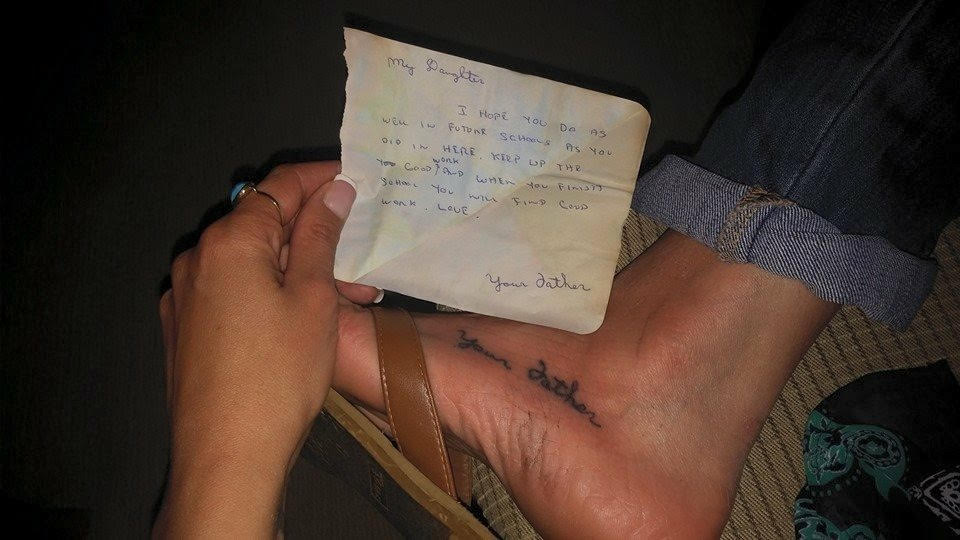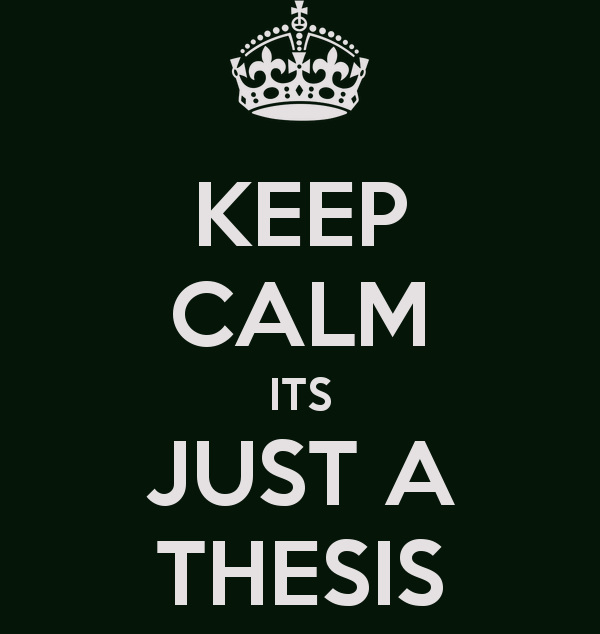I envision and hope for my final thesis to be equal parts creative and analytical. Kinda like me.
In three short weeks, I have eliminated 4 of my original 5 potential thesis topics. Replaced one of the eliminated topics with a completely (sorta) new topic . And, most recently, have managed to combine the “last two standing” into a project that truly makes my heart race.
There was this eerie (dare I say serendipitous??) moment on the phone with Alan when I realized part of my thesis was literally tattooed to my foot. The words: Your Father.

And so, with a little help from Alan, some soul searching, and web surfing, I have finally begun to see the possible shape of my project. I am eager to move on the next phase(s) of this journey and can honestly say that I am thrilled with where this may lead me….
Thesis Concept: A little hard to describe. In short, it’s a mixed-genre, low-tech, multimodal narrative. I would further categorize it as a creative nonfiction memoir, perhaps. I will reflect both on the creative writing process and the possible implications of such activities with regard to coping with the loss of a loved-one.
Creative Aspect: Basically, I intend to create a series of fictional “conversations” (think epistolary form) with my father–beginning on (or around) the day after he died (9-11-01) and ending in the present time (2017). However, throughout the course of this 16-year span of interactions, the mode of communication used would evolve to reflect the most socially-prevalent and accurate one of the time. For example, my father did not have a cell phone in 2001, so text-messaging would not be an accurate depiction of the time. I was thinking of starting with letters to my father, then emails, followed by text-messages and ending with tweets to each other.
Analytical Aspects: I am interested in reflecting on a number of things related to this project. Some things to consider:
- What does it take to recreate a realistic version of a real person? (memory, analyzing artifacts such as letters, notes; watching old home movies, etc.)
- How does the chosen mode of communication affect the narrative? (paying attention to the semiotics and nuances of the medium may produce shorter/longer, formal/informal, more/less frequent intervals of communications)
- How does the device/tool used to compose a narrative impact the creative process? (ex: should fictional narrative letters be drafted, edited and revised with pen and paper? Should an author composed text-message simulations on a cell phone in order to recreate an authentic experience and thus, believable output?, etc.)
- Is it possible to help others recreate this process?
- How can writing this type of memoir aid with the healing process after the loss of a loved-one?





I am so proud of how you have framed this, and how the idea evolved. And I am eager to learn more about “your father” and you through the journey. Now with this focus, and exploring the ideas of creating character, exploring expression in different media that stays consistent with that character, you are well on your way.
LikeLike
Yes, I am happy to have a clearer focus. It definitely helps with the research process. I am loving feedly, by the way! It took me a couple of days but it all makes sense now. (forgot to mention that in our phone chat)
LikeLike
Oh man, Laura, you’re going to destroy me! This sounds absolutely incredible and I can’t wait to see the process, as well as the end result. ❤
LikeLiked by 1 person
Laura, so proud! So proud of you. 💓 That being said, I’ll get to a discussion of your analytical & creative points. 📌
LikeLike
Thanks, Jill! I’d love your feedback, ideas, thoughts, etc! 🙂
LikeLike